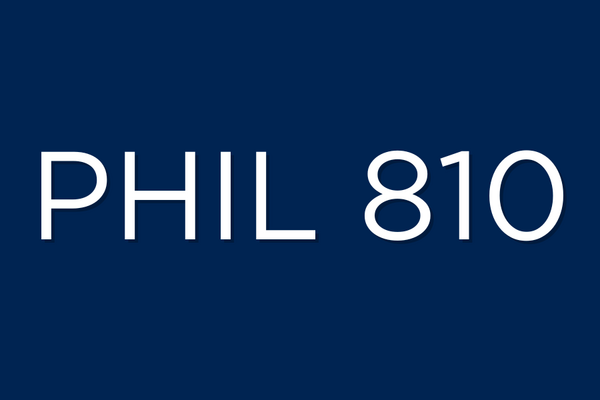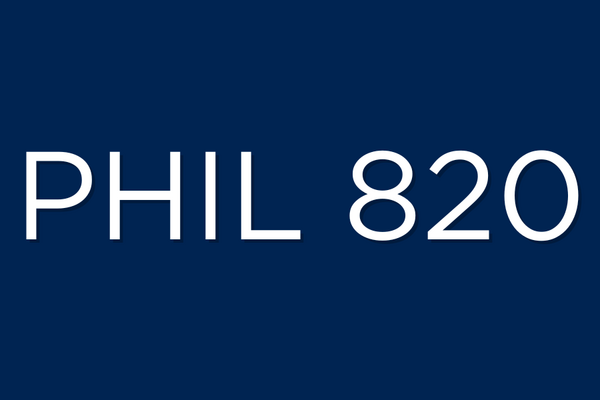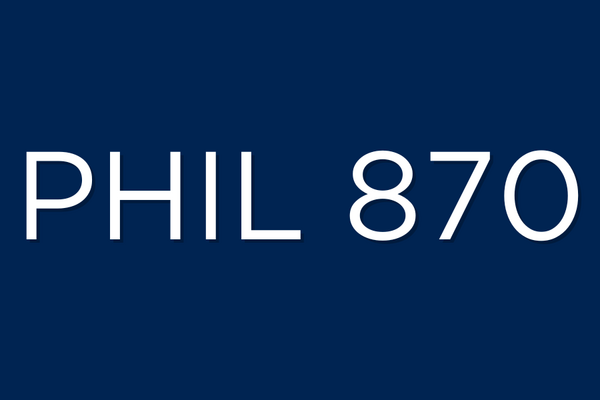*Note that students in the M.A. in Political and Legal Thought (PLT) program may enroll in PLT-designated courses offered by any of the program’s collaborating units (Philosophy, Political Studies, and Law). Philosophy Ph.D. students interested in enrolling in theory courses offered by Politics or Law should speak to the graduate coordinator (currently Professor Meena Krishnamurthy) about doing so.
2025-26
Social and Political Philosophy I
Term: Fall
Instructor(s): Christine Sypnowich
Course is cross-listed with PHIL 404
Topics in Philosophy of Law
Term: Winter
Instructor(s): Dalitso Ruwe
Course is cross-listed with PHIL 408
Topics in History of Philosophy
Term: Winter
Instructor(s): Ram Murty
Course cross-listed with PHIL 410
Topics in Philosophy of Culture
Term: Winter
Instructor(s): Dolleen Manning
Course is cross-listed with PHIL 412
Ethical Issues I
Term: Fall
Instructor(s): Udo Schuklenk
Course is cross-listed with PHIL 420
Ancient Philosophy
Term: Fall
Instructor(s): Daryn Lehoux
Course is cross-listed with PHIL 431
Major Figures I
Term: Fall
Instructor(s): Joshua Mozersky
Course is cross-listed with PHIL 445
Philosophy of Mind
Term: Winter
Instructor(s): Elliot Paul
Course is cross-listed with PHIL 464
Topics in Philosophy of Science
Term: Winter
Instructor(s): Catherine Stinson
Course is cross-listed with PHIL 471












